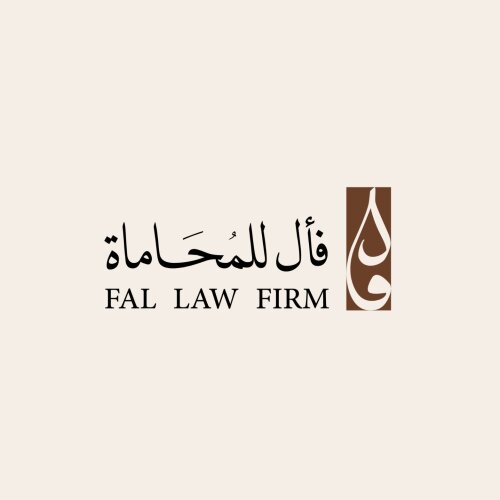Best Corporate Governance Lawyers in Riyadh
Share your needs with us, get contacted by law firms.
Free. Takes 2 min.
List of the best lawyers in Riyadh, Saudi Arabia

About Corporate Governance Law in Riyadh, Saudi Arabia
Corporate governance in Riyadh, Saudi Arabia refers to the framework of rules, practices, and processes by which companies are directed and controlled. The main goal of corporate governance is to align the interests of the company's management with those of its shareholders and other stakeholders. In Riyadh, as in the rest of the Kingdom, corporate governance standards are heavily influenced by the Saudi Capital Market Authority (CMA) regulations and the Saudi Companies Law, with a focus on transparency, accountability, and responsible management. Over recent years, significant reforms have been made to improve investor confidence and elevate business practices, making Riyadh a regional hub for corporate excellence.
Why You May Need a Lawyer
A lawyer specializing in corporate governance can provide invaluable assistance in several situations, including:
- Establishing a new company or corporate entity and ensuring compliance with governance laws
- Drafting or reviewing corporate charters, bylaws, and policies
- Navigating the requirements for boards of directors and board committees
- Assisting with shareholder disputes or conflicts of interest
- Ensuring that company disclosures meet regulatory requirements
- Advising on mergers, acquisitions, or corporate restructuring
- Managing regulatory investigations or compliance reviews
- Responding to whistleblowing or internal audit findings
- Supporting with initial public offerings or capital market activities
- Educating executives and board members on their legal obligations and duties
Legal advice can be essential to avoid significant penalties, ensure good standing with regulators, protect the company’s reputation, and enhance overall operational stability.
Local Laws Overview
Corporate governance in Riyadh is mainly regulated by the Saudi Companies Law, last updated in 2016 and further developed in subsequent years. Key aspects include:
- The Saudi Capital Market Authority (CMA) issues mandatory Corporate Governance Regulations for public companies
- Requirements for the structure and composition of boards of directors, including the independence of certain members
- The need for specialized board committees, such as audit and nomination and remuneration committees
- Obligations concerning disclosure and transparency, especially relating to financial statements and any material events
- Definition of the roles and liabilities of directors, officers, and major shareholders
- Rules on related party transactions and management of conflicts of interest
- Frameworks for shareholders’ rights, protection, and participation in company decisions
- Compliance and internal control systems to detect and prevent fraud or abuse
- Enforcement mechanisms for breaches of governance rules, including penalties or sanctions by the CMA
Multinational companies and foreign investors in Riyadh must also comply with regulations set by the Ministry of Investment (MISA) and the Saudi Arabian General Investment Authority (SAGIA).
Frequently Asked Questions
What is corporate governance?
Corporate governance refers to a set of rules and practices that guide how a company is managed, making sure it operates ethically, transparently, and in the best interest of its shareholders and stakeholders.
Who regulates corporate governance in Riyadh?
The main regulatory body is the Saudi Capital Market Authority (CMA), which sets out rules for listed companies. The Saudi Ministry of Commerce and Ministry of Investment also play important roles.
Are there mandatory corporate governance rules for all companies?
Mandatory corporate governance regulations mainly apply to listed companies on the Saudi Stock Exchange (Tadawul). However, best practices are encouraged for other companies as well.
What are the main duties of board members?
Board members must act in the company's best interests, avoid conflicts of interest, ensure proper supervision of management, and make decisions transparently and responsibly.
Are there requirements for board committees?
Yes, listed companies must have committees for audit and nominations and remuneration. These committees should include independent members to ensure unbiased oversight.
How do shareholders participate in governance?
Shareholders can vote at general meetings, propose agenda items, and access essential information about the company's operations and performance.
What are the penalties for non-compliance with governance laws?
Penalties may include fines, administrative action by regulators, lawsuits from shareholders, or even suspension of company operations in severe cases.
How can a company improve its corporate governance?
By adopting clear policies, ensuring independent and skilled board members, providing regular disclosures, and conducting internal audits and compliance training.
Can foreign investors serve as board members?
Yes, provided they meet the eligibility criteria under Saudi law and the company's articles of association, foreign nationals can serve as directors in Saudi companies.
How can a lawyer help with corporate governance?
A lawyer provides advice on compliance, drafts necessary documents, represents the company in regulatory matters, and helps resolve disputes or regulatory investigations.
Additional Resources
For further information or guidance on corporate governance in Riyadh, the following organizations and resources can be helpful:
- Saudi Capital Market Authority (CMA) - regulator for public companies
- Ministry of Commerce - registration and compliance for all companies
- Ministry of Investment (MISA) - support and guidance for foreign investors
- Saudi Stock Exchange (Tadawul) - information on listed entities
- Chamber of Commerce in Riyadh - business support and legal advisory services
Next Steps
If you believe you need legal assistance related to corporate governance in Riyadh, your best next step is to consult with a local lawyer who specializes in this area. Prepare all relevant company documents and a list of concerns or questions you have. You may also contact the Saudi Capital Market Authority or the Chamber of Commerce for referrals to qualified professionals. Taking prompt and informed action helps protect your business, fosters trust among stakeholders, and ensures you remain compliant with local regulations.
Lawzana helps you find the best lawyers and law firms in Riyadh through a curated and pre-screened list of qualified legal professionals. Our platform offers rankings and detailed profiles of attorneys and law firms, allowing you to compare based on practice areas, including Corporate Governance, experience, and client feedback.
Each profile includes a description of the firm's areas of practice, client reviews, team members and partners, year of establishment, spoken languages, office locations, contact information, social media presence, and any published articles or resources. Most firms on our platform speak English and are experienced in both local and international legal matters.
Get a quote from top-rated law firms in Riyadh, Saudi Arabia — quickly, securely, and without unnecessary hassle.
Disclaimer:
The information provided on this page is for general informational purposes only and does not constitute legal advice. While we strive to ensure the accuracy and relevance of the content, legal information may change over time, and interpretations of the law can vary. You should always consult with a qualified legal professional for advice specific to your situation.
We disclaim all liability for actions taken or not taken based on the content of this page. If you believe any information is incorrect or outdated, please contact us, and we will review and update it where appropriate.
















